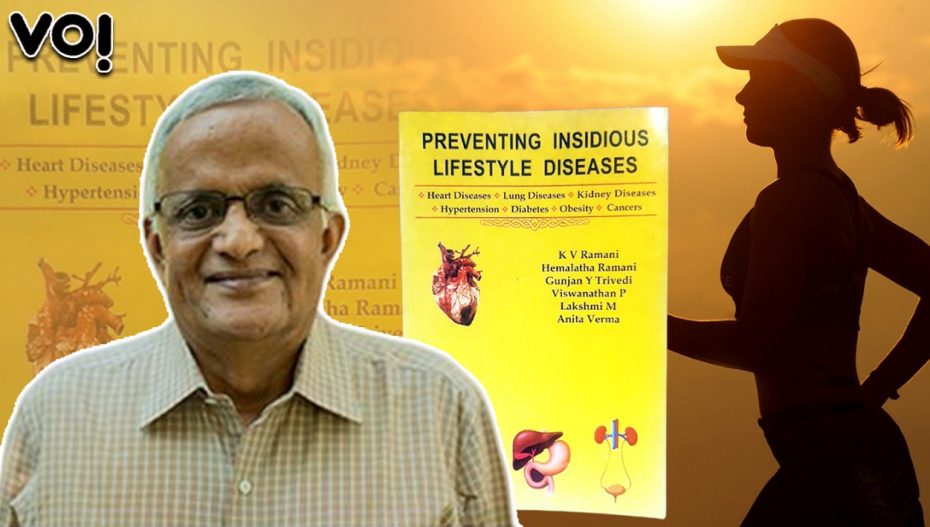To educate the common man on the impact of lifestyle diseases, MICA Adjunct Faculty Professor K.V. Ramani (also retired IIM-A Professor) has co-authored “Preventing Insidious Lifestyle Diseases.” The book explains the connection between poor lifestyle choices, physiological homeostasis, and chronic diseases in non-medical terms.
The book defines and analyses, in non-medical terms, the significance of maintaining all body parameters such as lipid profile and blood sugar . under control (known as physiological homeostasis) to ward away chronic (lifelong) diseases that include heart, lung and kidney diseases, hypertension, diabetes and obesity.
Co-authors include noted economist, Dr Hemalatha Ramani, emotional wellness expert, Gunjan Trivedi, Dr Viswanathan P (internal Medicine), Dr Lakshmi M (internal medicine), and Dr Anita Verma (physiology). With Professor Ramani as the lead author, the title is a culmination of knowledge from clinical practice and experience.
“This timely book focusses on one of the SDGs (Sustainable Development Goals) and dissects medical jargon in simple terms. I congratulate Professor Ramani and his team for this book,” Dr Shailendra Raj Mehta, president and director, MICA, lauded the team.
Elaborating on the need for the book, Professor Ramani adds: “Chronic diseases have been on the rise in the last two decades and account for almost 65 per cent of the total global and domestic disease burden. These diseases cannot be cured. Medical interventions, at best, give temporary relief and slow down the disease progression before premature death. Reducing premature death from chronic diseases is a Sustainable Development Goal (SGD) of the World Health Organization (WHO).”
The USP of this book lies in a detailed explanation between poor lifestyle choices, physiological homeostasis and chronic diseases in non-medical terms. The book covers lifestyle and health hazards like smoking, alcohol, unhealthy diet and physical inactivity.
The chapters on physiological homeostasis and chronic diseases include the O2-CO2 exchange process, blood pressure levels, sugar levels, electrolyte and fluid balance, energy levels, obesity, cancer, diabetes, hypertension. Apart from these, the chapter on nutrition and health stresses on the role of macronutrients, micronutrients, water and a balanced diet.













